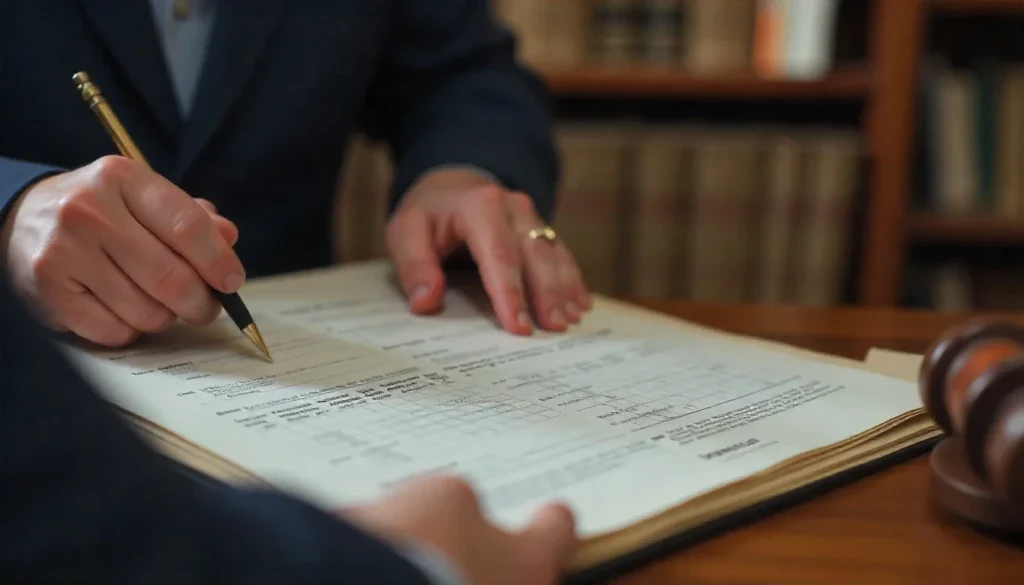If you or a loved one has been arrested and is facing criminal charges in New South Wales (NSW), one of the most critical steps to take early in the legal process is applying for bail. Being granted bail allows an accused person to remain in the community while awaiting trial or other court proceedings.
But bail isn’t automatically granted in NSW—especially for more serious offences or where a person has a history of failing to appear. Understanding how the bail process works, the legal criteria involved, and how to prepare a strong bail application can significantly increase your chances of success.
In this guide, we’ll break down everything you need to know about bail applications in NSW, from eligibility to the legal tests applied by courts, and expert tips to help ensure the best possible outcome.
What Is Bail in NSW?
Bail is a legal mechanism that allows a person charged with a criminal offence to be released from custody while their case is ongoing. It can be granted by a police officer or a magistrate or judge in court.
Under the Bail Act 2013 (NSW), bail refers to a decision that an accused person will be allowed to remain at liberty (with or without conditions) pending further court appearances.
Bail helps balance two key interests:
-
Protecting the community and ensuring the accused appears in court
-
Respecting the rights of the accused, who is presumed innocent until proven guilty
Types of Bail in NSW
There are different types of bail outcomes:
1. Police Bail
Granted by the arresting officer or custody sergeant at the police station. If refused, the person will be taken to court for a bail hearing.
2. Court Bail
Determined by a Local Court Magistrate or District or Supreme Court Judge, especially when police bail is denied or revoked.
3. Conditional Bail
May include conditions such as:
-
Reporting to a police station
-
Not contacting certain people
-
Surrendering a passport
-
Residing at a particular address
4. Unconditional Bail
Granted without additional restrictions, but still requires the accused to attend court when required.\
Understanding the Bail Act 2013 (NSW)

The Bail Act 2013 (NSW) sets out the framework for determining whether an individual should be granted bail. It replaced the older bail laws to simplify the process and create a more risk-based approach.
Key features include:
-
A presumption of innocence
-
A “show cause” requirement for serious offences
-
A bail concerns test to assess risk
When Is Bail Most Likely to Be Refused?
Bail may be refused if the court believes there are unacceptable risks that cannot be mitigated by imposing bail conditions. These risks include:
-
Flight risk (likelihood of not appearing in court)
-
Risk to the safety of the victim, witnesses, or community
-
Interference with evidence or witnesses
-
Likelihood of committing further offences while on bail
For more serious offences (e.g., murder, serious drug offences, sexual assault), the “show cause” test applies, meaning the accused must show why their detention is not justified.
What Is the Show Cause Test?
Under the Bail Act, certain offences trigger a show cause requirement under Section 16B. The accused must show why continued detention is not justified.
Examples of show cause offences:
-
Certain firearms offences
-
Drug trafficking
-
Aggravated sexual assault
-
Serious domestic violence offences
The court won’t consider bail concerns unless the show cause test is satisfied.
How to Meet the Show Cause Requirement:
-
Stable employment and residence
-
Lack of criminal record or history of compliance with bail
-
Strong family/community support
-
Medical or mental health issues requiring treatment in the community
-
Delay in proceedings likely to cause extended detention
What Are Bail Concerns?
Once the show cause test is passed (or not applicable), the court applies the unacceptable risk test to assess bail concerns.
The court must consider whether there is a risk that the accused will:
-
Fail to appear at court
-
Commit a serious offence
-
Endanger the safety of victims or the community
-
Interfere with witnesses or evidence
If such risks exist, the court must consider whether they can be mitigated through appropriate bail conditions.
Factors Considered by the Court in a Bail Application
The court takes a holistic view of the accused’s circumstances, including:
-
The nature and seriousness of the offence
-
Strength of the prosecution case
-
Criminal history
-
Community ties and support
-
Living arrangements and employment
-
Whether the accused has previously breached bail
-
Health, age, and special vulnerabilities (e.g., Aboriginal or Torres Strait Islander background)
How to Prepare a Strong Bail Application in NSW
1. Engage a Criminal Defence Lawyer
Having an experienced criminal lawyer in Northern NSW or your local area is vital. They can:
-
Prepare legal arguments
-
Draft and submit a formal bail application
-
Represent you effectively in court
2. Provide Supporting Documentation
The stronger your evidence, the better your chances. Helpful documents include:
-
Proof of address and employment
-
Character references
-
Medical reports
-
Letters of support from family or community leaders
3. Propose Strict Bail Conditions
To address bail concerns, propose conditions such as:
-
Daily or weekly reporting
-
Curfew
-
No-contact orders
-
Sureties or financial bonds
-
GPS tracking (in exceptional cases)
4. Surety or Bail Security
A surety is a person who guarantees the accused will comply with bail, often by providing a monetary bond. Courts view this as a sign of community trust and accountability.
Tips to Increase Your Chances of Bail Success
-
Be prepared: Work closely with your lawyer and gather all necessary documentation
-
Address risks proactively: Offer strict bail conditions before the court imposes them
-
Demonstrate community ties: Strong local support often makes a big difference
-
Be respectful and honest in court proceedings
-
Avoid discussing your case with others, especially online or via text
What Happens If Bail Is Refused?
If bail is denied, the accused will remain in custody (on remand) until their matter is finalised, unless:
-
A fresh bail application is made with new circumstances
-
An appeal is lodged with the Supreme Court of NSW
It’s essential to understand that repeat bail applications are limited unless new facts or circumstances arise.
How to Appeal a Bail Refusal in NSW
If the Local Court refuses bail, the decision can be appealed to the Supreme Court of NSW. This process requires:
-
Legal submissions
-
A renewed focus on mitigating risks
-
New or additional evidence
An experienced bail lawyer can guide you through the appeal process.
Bail Conditions – What You Need to Know
If bail is granted with conditions, it is crucial to comply. Breaching bail can lead to:
-
Immediate arrest
-
Bail revocation
-
Additional criminal charges
Common bail conditions include:
-
Regular reporting to police
-
Living at a fixed address
-
No contact with alleged victims or co-accused
-
Restrictions on travel
-
Curfews
In some cases, electronic monitoring may be required for high-risk applicants.
Youth and Bail in NSW
Children (under 18) facing charges are assessed differently under the Young Offenders Act 1997 and Children (Criminal Proceedings) Act 1987.
Courts consider the best interests of the child and are generally more inclined to grant bail if:
-
The young person has support from guardians
-
Alternative supervision arrangements (like youth bail programs) are available
Special Considerations for Aboriginal and Torres Strait Islander Accused
Under Section 18 of the Bail Act, the court must consider the unique circumstances of Aboriginal or Torres Strait Islander people, including:
-
Disconnection from land and family
-
Cultural obligations
-
Historical disadvantage
-
Overrepresentation in custody
Providing culturally relevant support plans can assist in bail being granted.
Bail Variation in NSW
If circumstances change, your lawyer can apply to vary bail conditions, such as:
-
Changing reporting frequency
-
Modifying curfews
-
Allowing interstate travel
The court may consider these variations if the request is reasonable and justified.
Common Mistakes to Avoid in a Bail Application
-
Inadequate preparation
-
Failing to address the show cause requirement
-
Submitting weak or inconsistent supporting material
-
Ignoring prior bail breaches
-
Applying for bail without legal advice
Final Thoughts: Why Legal Advice Matters
Applying for bail is more than filling out a form—it requires strategy, legal skill, and local knowledge. Every bail application is unique and must be carefully tailored to the accused’s circumstances and the nature of the charges.
At Lyon Legal Services, we help clients throughout Northern NSW navigate the bail process with confidence. Whether it’s your first time in custody or you’re facing a serious charge, we prepare persuasive bail applications that maximise your chances of freedom.
Call to Action: Need Help With a Bail Application in Northern NSW?
Don’t risk your freedom or wait too long behind bars. Contact Lyon Legal Services today for expert bail advice and representation across Northern NSW, including Lismore, Ballina, Byron Bay, Grafton, and surrounding areas.
Call now or book your free initial consultation online to get started.


















